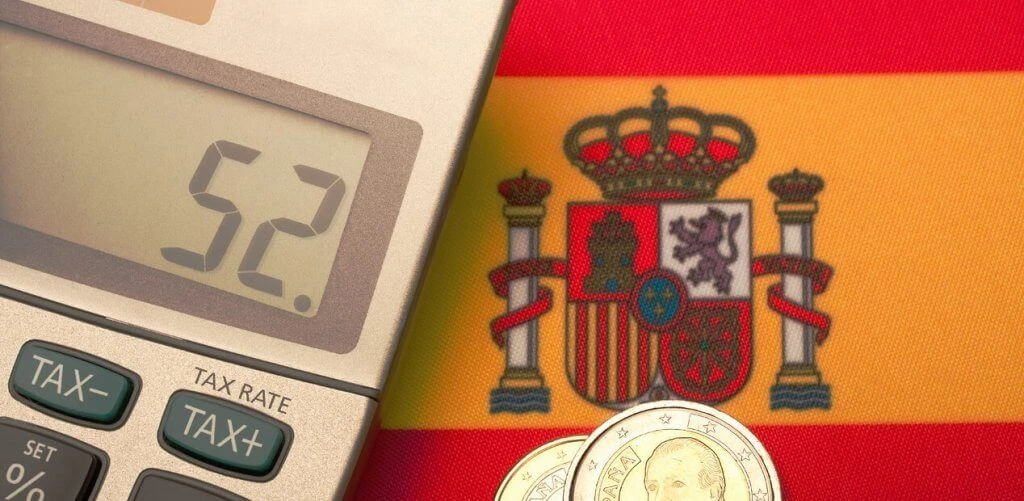Moving House

Moving Abroad

Container Shipping

Services

Find a Mover


When it comes to moving abroad is important to know how taxes work. There are several types of taxes in Spain and it important to know how this will affect you. Anyone who lives and works there is part of the Spanish tax system. Here you will find information about tax system in Spain such as the most common taxes and how to file a tax return in Spain.
Income taxes in Spain, known as renta, are similar to the UK in the way that they are a progressive system. The amounts that you can be taxed for each amount differs slightly and can be found in the table below:
| From | Until | Taxable amount |
|---|---|---|
| €0 | €12,450 | 19% |
| €12,450 | €20,200 | 24% |
| €20,200 | €35,200 | 30% |
| €35,200 | €60,000 | 37% |
| €60,000 or more | – | 45% |
Also known as the capital gains tax or patrimonio. This is a tax that is applied to any profits made on the sale of property. It applies to both residents and non-residents but in different ways.
Non-residents pay 19.5% capital gains tax. Some 3% of the price of the total sale is withheld by the Spanish tax authority (taken directly from the purchaser) in order to ensure that non residents do not leave the country before the tax has been paid.
Residents must declare capital gains tax on their annual tax declarations. There are several exceptions for residents including:
Similarly to the UK, Spain has several taxes that affect people in their day-to-day lives. The major ones are:
Now that you know a bit more about taxes in Spain you can work out how to file a tax return on your assets. The Spanish authorities expect you to keep a record of your income and expenditure in order to check you’re paying the right amount of tax. Therefore there are three different forms that you can use to help:
The fiscal year runs from 1st January – 31st December and tax returns must be filed between 1st May and 20th June. If you are late paying taxes then you will be made to pay an extra 20% tax.
Fortunately, employers in Spain are responsible for withholding tax contributions meaning that much of the work is taken out of your hands. Self-employed people are required to file tax returns every 4 months (using Form 037).
*Sponsored
Was this information about taxes in Spain useful for you? You might find it interesting to read more about moving to Spain.

